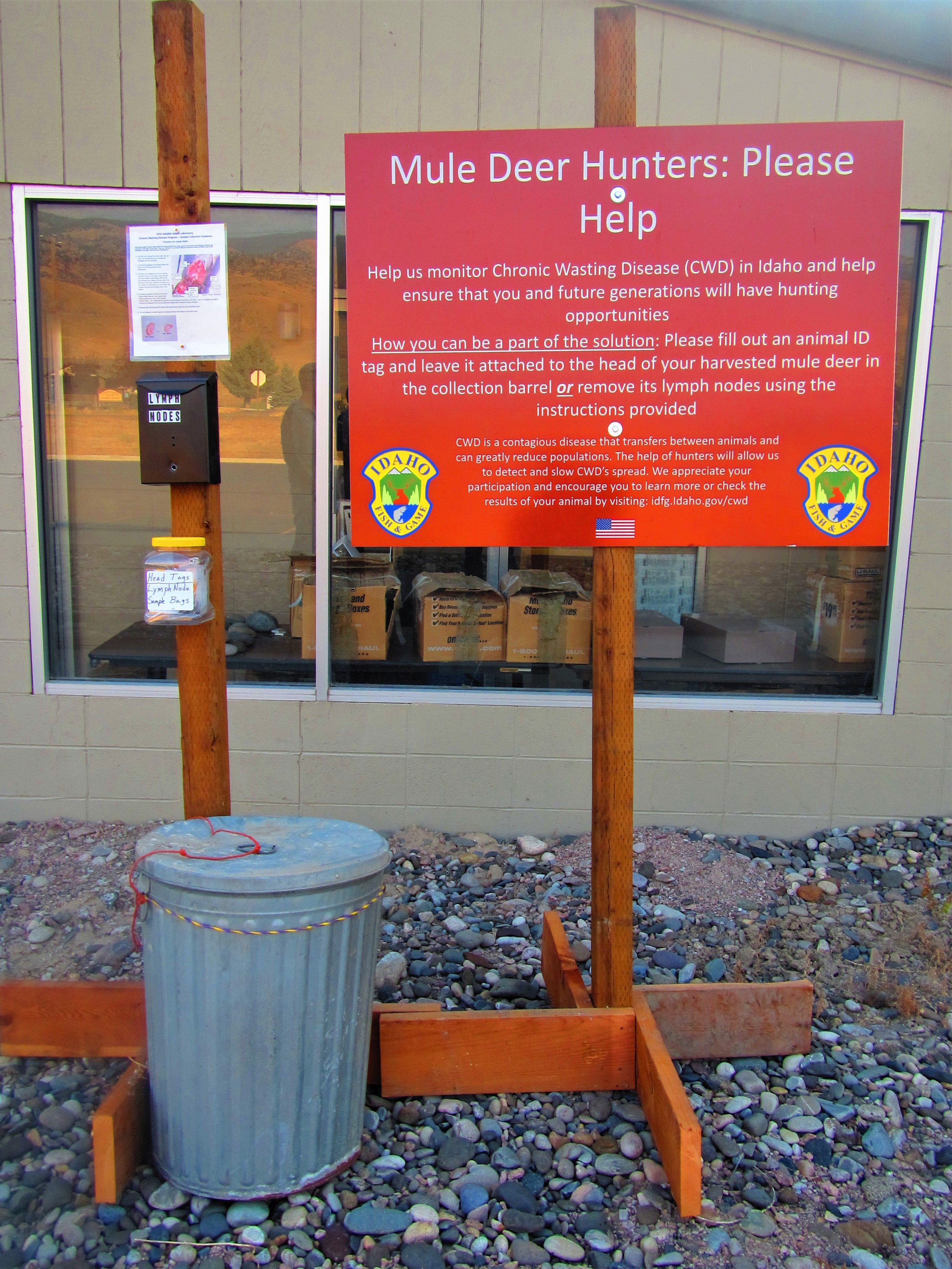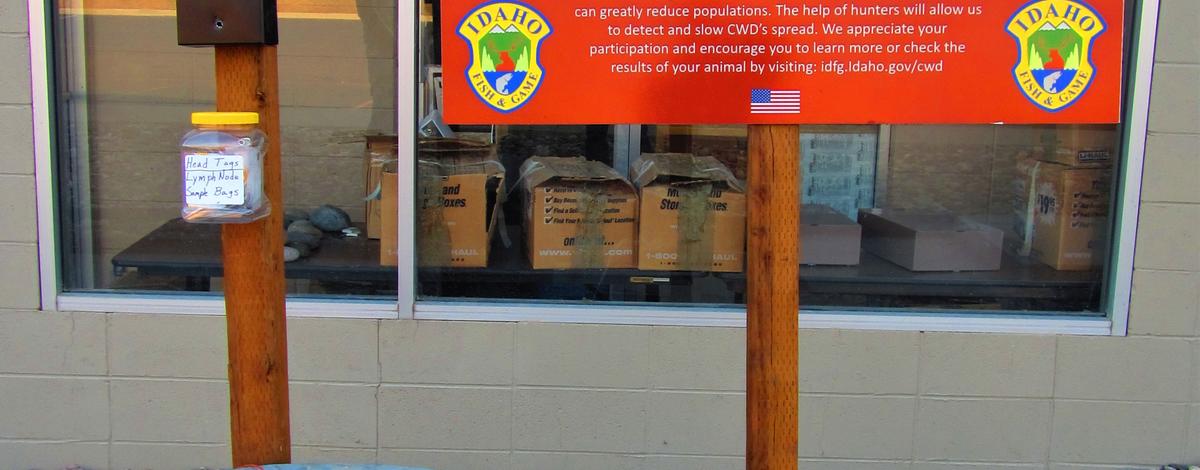This fall, successful deer hunters are asked to help Idaho Fish and Game increase its monitoring efforts for Chronic Wasting Disease (CWD), a contagious and fatal disease that affects mule deer, white-tailed deer, elk, caribou and moose.

Hunters who harvest a mule deer, specifically a yearling or adult, are asked to provide their deer head or extract their deer’s lymph nodes for testing at four area collection stations. Stations will be at the North Fork General Store, Leadore Stage Stop, IDFG Regional Office, and north of Challis at the checkstation on Highway 93.
“With hunter’s help, we hope to collect samples from between 200 and 300 yearling and adult mule deer – but no fawns,” said Bret Stansberry, IDFG wildlife biologist based in Salmon. “This is a lofty goal, and hunters are asked to play a vital role.”
Detailed instructions, head tags, sample envelopes, and diagrams for extracting the lymph nodes for those willing to do so will be provided at the collection stations and at the IDFG regional office in Salmon. Sample drop-offs can be done any time until October 31.
The CWD page on IDFG’s website has more information, including pictures and a video on how to remove the lymph nodes, and details with instructions on drop-off locations.
Idaho Fish and Game has tested over 16,000 big game animals over 20 years and has not detected CWD in Idaho. However, Montana, Utah and Wyoming have confirmed cases of CWD in animals close to the Idaho border. Several states with CWD in their wild deer and elk herds have documented population declines and fewer mature bucks and bulls.
Without a vaccine for this fatal disease, it poses a serious risk to Idaho’s deer, elk, and moose populations, and ultimately, to hunting opportunities.
For more information about CWD monitoring or if you have questions, contact Bret Stansberry at the Salmon Fish and Game office at 756-2271.

